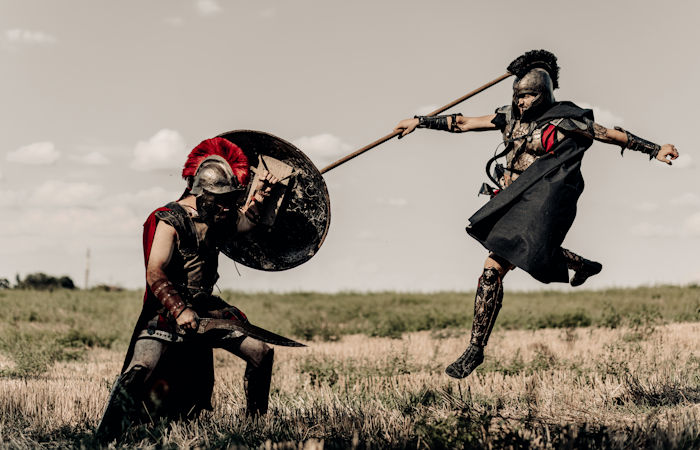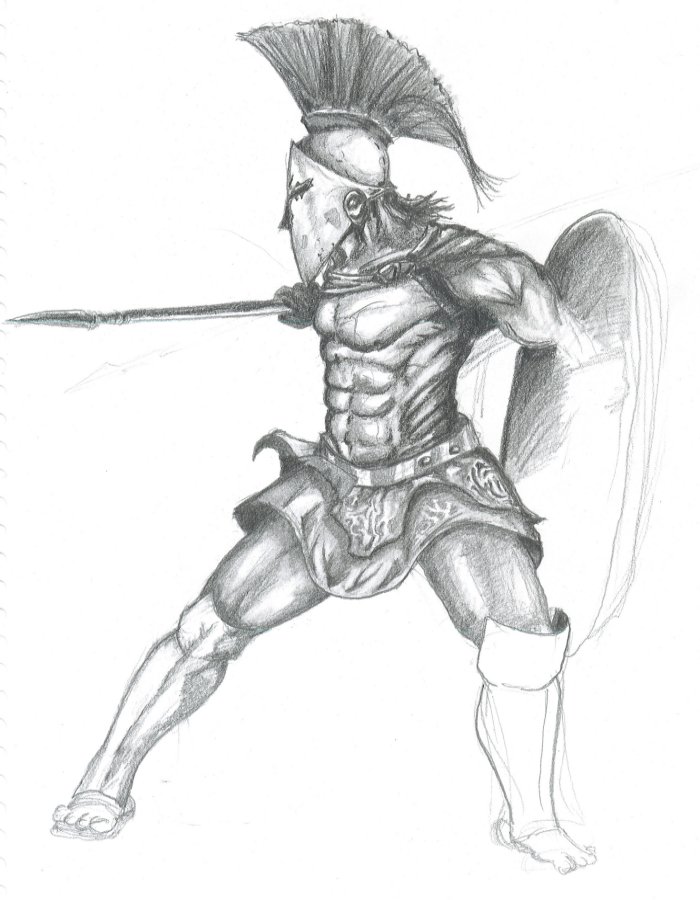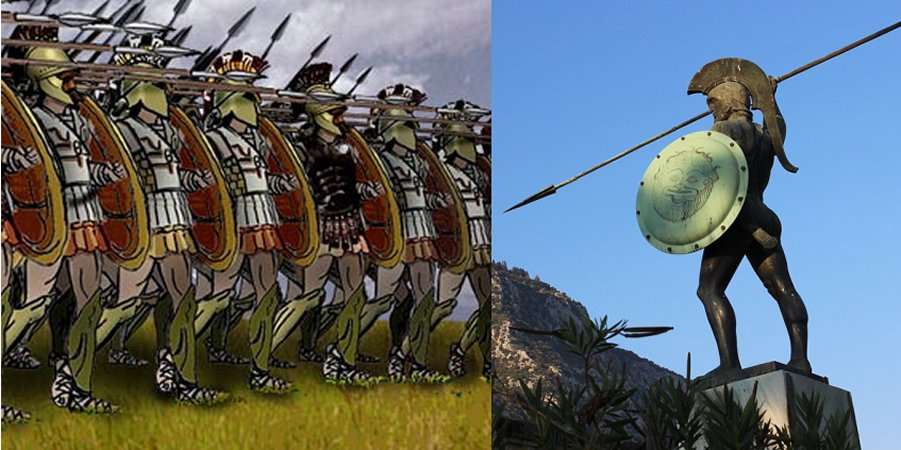Why Was The Spartan Army So Successful?
Conny Waters - AncientPages.com - Sparta was famous for being a city-state that valued discipline. The state’s citizens were expected to be loyal and contribute to Sparta’s prosperity. Located in a valley on the banks of the Eurotas River in the southeastern portion of Greece, it was surrounded by several enemies.
Credit: Adobe Stock - Stanislav
Foreigners were allowed to live in Sparta, but they had no rights as citizens and could be expelled anytime for any reason.
It’s also no coincidence that Spartan warriors were exceptionally skilled, and the army was victorious. Military training and education were mandatory for young boys.
What Was Daily Life For Spartan Warriors?
Ancient records reveal warriors of Sparta had to follow strict rules. Young men trained to become warriors had limited rights to move around freely.
From the age of 7, when military training started, boys and men had to live in confined military barracks until they were 30 years. Leaving those houses was not permitted, not even when the men married. There was not much room for private life.
An image drawn in pencil of a Spartan Warrior. Image credit: SAWg3rd - CC0 1.0
These restrictions occasionally led to those men sneaking out late in the evening to meet their wives.
In Sparta, only the strongest survived. As previously mentioned in Ancient Pages, “one of the harshest facts to come out about this way of living was that the older citizens of Sparta would kill those boys who could not be trained due to a disability.
The boys were thrown into a pit by the elders, who judged the physical ability of each boy in question. Not all were condemned to death, just the weakest ones.”
Spartan warriors were somewhat vain. They often wore long hair and styled it before a battle. The goal was to look as fearsome as possible, but an attractive physical appearance was never wrong. A real warrior never wore any clothes except for the red cape.
Also, a Spartan warrior could not expect to enjoy too much delicious food. Nothing was more ridiculous than a fat warrior. Spartan warriors were expected to be athletic and fit.
Left: The Spartan army was an infantry-based army that fought using the phalanx formation. Credit: Public Domain - Right: Statue of King Leonidas. Credit: Public Domain
The worst sin a Spartan warrior could commit was capitulation. When raising their sons, mothers always told them they should return as soldiers or dead in a battle. The die-or-win mentality was typical among warriors of the ancient world. Viking warriors’ highest goal was to die courage in battle. Only such honorable death could guarantee a Viking entrance to Valhalla, where the great Norse God Odin resided.
The Spartan King Leonidas received superior military training, which prepared him unknowingly for future events. He may not have succeeded in winning an impossible war, but he and his 1,000 men died heroically defending the land that they loved.
It cannot be denied that Spartan warriors were skilled, effective, and courageous, but all their accomplishments were achieved through hard military training that started at a young age.
Written by Conny Waters – AncientPages.com Staff Writer
Updated on October 30, 2022
Copyright © AncientPages.com All rights reserved. This material may not be published, broadcast, rewritten or redistributed in whole or part without the express written permission of AncientPages.com
Expand for referencesMore From Ancient Pages
-
 Troublemaker Eris: Greek Deity That Ignited Hatred Among All
Featured Stories | Apr 11, 2024
Troublemaker Eris: Greek Deity That Ignited Hatred Among All
Featured Stories | Apr 11, 2024 -
 What A Bath, Taken 1,000 Years Ago, Can Tell Us About The Conflicted English Kingdom Of The 11th Century
Featured Stories | Jun 14, 2024
What A Bath, Taken 1,000 Years Ago, Can Tell Us About The Conflicted English Kingdom Of The 11th Century
Featured Stories | Jun 14, 2024 -
 Ancient City Of Tenea Built By Trojan Prisoners Reveals More Archaeological Secrets
Archaeology | Feb 15, 2023
Ancient City Of Tenea Built By Trojan Prisoners Reveals More Archaeological Secrets
Archaeology | Feb 15, 2023 -
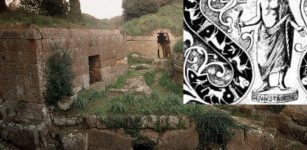 Tages: Etruscan Prophet Who Revealed Sacred Knowledge Before He Vanished
Featured Stories | Mar 1, 2016
Tages: Etruscan Prophet Who Revealed Sacred Knowledge Before He Vanished
Featured Stories | Mar 1, 2016 -
 Rare 1,800-Year-Old Fragment From Fish-Shaped Roman Bottle Unearthed In Gloucestershire
Archaeology | Jul 23, 2019
Rare 1,800-Year-Old Fragment From Fish-Shaped Roman Bottle Unearthed In Gloucestershire
Archaeology | Jul 23, 2019 -
 Elizabeth Woodville: Mother Of The Princes In The Tower And Commoner Queen
Featured Stories | Jul 16, 2018
Elizabeth Woodville: Mother Of The Princes In The Tower And Commoner Queen
Featured Stories | Jul 16, 2018 -
 Evolution Might Stop Humans From Solving Climate Change – Researchers Say
Evolution | Jan 3, 2024
Evolution Might Stop Humans From Solving Climate Change – Researchers Say
Evolution | Jan 3, 2024 -
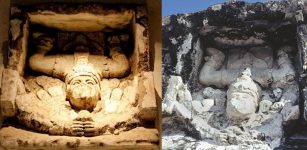 Ancient Maya Ruins Of Tulum: Sea Port And Sacred Site For Worshiping Of Descending God
Featured Stories | Aug 10, 2016
Ancient Maya Ruins Of Tulum: Sea Port And Sacred Site For Worshiping Of Descending God
Featured Stories | Aug 10, 2016 -
 120,000-Year-Old Bone Etchings – Evidence Of The Earliest-Known Use Of Symbols
Archaeology | Feb 3, 2021
120,000-Year-Old Bone Etchings – Evidence Of The Earliest-Known Use Of Symbols
Archaeology | Feb 3, 2021 -
 World’s Oldest Dictionaries Are 4,500-Year-Old Cuneiform Tablets Discovered In Ebla
Ancient History Facts | Aug 19, 2016
World’s Oldest Dictionaries Are 4,500-Year-Old Cuneiform Tablets Discovered In Ebla
Ancient History Facts | Aug 19, 2016 -
 Balkan Mountains’ Enigma – Strange Underground Anomaly Discovered
Featured Stories | Mar 30, 2025
Balkan Mountains’ Enigma – Strange Underground Anomaly Discovered
Featured Stories | Mar 30, 2025 -
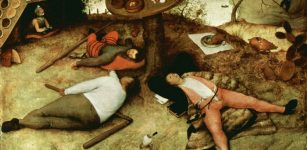 Medieval Paradise Cockaigne – Land Of Extreme Pleasure And Luxury
Featured Stories | Dec 12, 2018
Medieval Paradise Cockaigne – Land Of Extreme Pleasure And Luxury
Featured Stories | Dec 12, 2018 -
 Who Was The Mysterious Spitalfields Roman Noblewoman Dressed In Silk Found In A Sarcophagus In London?
Archaeology | Dec 21, 2020
Who Was The Mysterious Spitalfields Roman Noblewoman Dressed In Silk Found In A Sarcophagus In London?
Archaeology | Dec 21, 2020 -
 Mystery Of The Cave Where People Vanish Or Become Disoriented
Featured Stories | Jan 2, 2024
Mystery Of The Cave Where People Vanish Or Become Disoriented
Featured Stories | Jan 2, 2024 -
 Ancient Chinese Tai Chu Calendar Was Defined By Emperor Han Wu
Ancient History Facts | Jun 3, 2019
Ancient Chinese Tai Chu Calendar Was Defined By Emperor Han Wu
Ancient History Facts | Jun 3, 2019 -
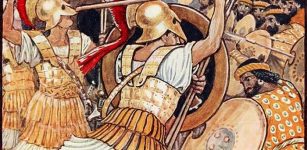 On This Day In History: Battle Of Marathon Was Fought – On Sep 12, 490 BC
News | Sep 12, 2016
On This Day In History: Battle Of Marathon Was Fought – On Sep 12, 490 BC
News | Sep 12, 2016 -
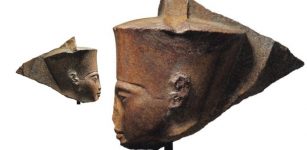 Egypt Calls On Christie’s Auction House In London To Stop Sale Of Tutankhamun Statue Head
Archaeology | Jun 14, 2019
Egypt Calls On Christie’s Auction House In London To Stop Sale Of Tutankhamun Statue Head
Archaeology | Jun 14, 2019 -
 Fresco Reveals Renaissance Genius Raphael Used Egyptian Blue – World’s Oldest Artificial Pigment
News | Sep 8, 2020
Fresco Reveals Renaissance Genius Raphael Used Egyptian Blue – World’s Oldest Artificial Pigment
News | Sep 8, 2020 -
 On This Day In History: Berlin Victory Parade Took Place – On September 7, 1945
News | Sep 7, 2016
On This Day In History: Berlin Victory Parade Took Place – On September 7, 1945
News | Sep 7, 2016 -
 Mysterious Denny – 90,000-Year-Old Child Whose Parents Were Two Different Human Species
Featured Stories | Jul 25, 2023
Mysterious Denny – 90,000-Year-Old Child Whose Parents Were Two Different Human Species
Featured Stories | Jul 25, 2023

